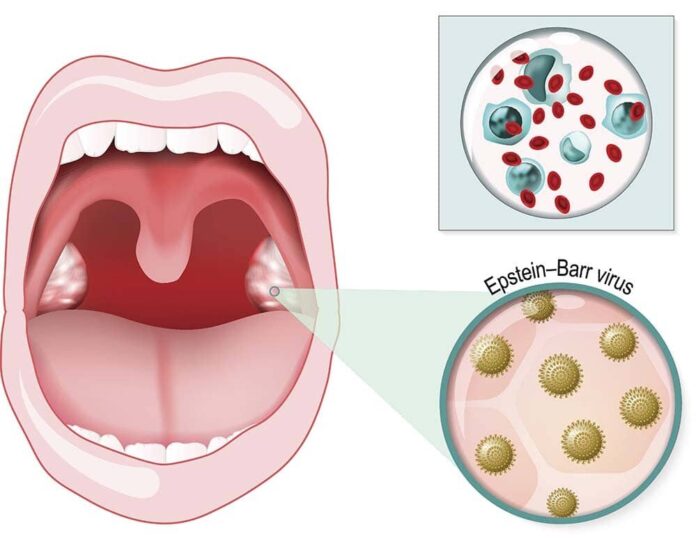Mononucleosis, often referred to as “mono” or the “kissing disease,” is a viral infection most commonly caused by the Epstein-Barr virus (EBV). Here’s an overview of its symptoms, causes, treatment, and prevention:
Symptoms:
- Fatigue: Persistent and severe tiredness is a hallmark symptom.
- Sore Throat: Severe sore throat, often with swollen tonsils and lymph nodes.
- Fever: High fever, usually above 101°F (38.3°C).
- Swollen Lymph Nodes: Particularly in the neck and armpits.
- Swollen Liver or Spleen: Abdominal pain due to enlargement of these organs.
- Rash: Some individuals may develop a rash, especially after taking certain medications like ampicillin or amoxicillin.
Causes:
- Epstein-Barr Virus (EBV): This is the primary cause of mononucleosis. It’s a member of the herpes virus family and is very common worldwide. EBV is typically spread through saliva, hence its association with the nickname “kissing disease.” However, it can also spread through other bodily fluids.
Treatment:
- Rest: Plenty of rest is crucial to help the body fight off the infection.
- Hydration: Drinking plenty of fluids helps to prevent dehydration, especially if you have a fever.
- Pain Relievers: Over-the-counter pain relievers such as acetaminophen (Tylenol) or ibuprofen (Advil, Motrin IB) can help reduce fever and relieve sore throat and headache.
- Corticosteroids: In severe cases with significant swelling, corticosteroids may be prescribed to reduce inflammation.
- Avoiding Certain Medications: Because of the risk of developing a rash, individuals with mono should avoid certain antibiotics like ampicillin and amoxicillin.
Prevention:
- Avoid Close Contact: Since mono is primarily spread through saliva, avoiding kissing or sharing utensils, drinks, or food with infected individuals can help prevent transmission.
- Hand Hygiene: Regular handwashing, especially after coughing, sneezing, or touching your face, can help reduce the risk of spreading EBV.
- Boosting Immunity: While there’s no specific vaccine for EBV, maintaining a healthy lifestyle, including a balanced diet, regular exercise, and adequate sleep, can help boost your immune system and reduce the likelihood of contracting the virus.































